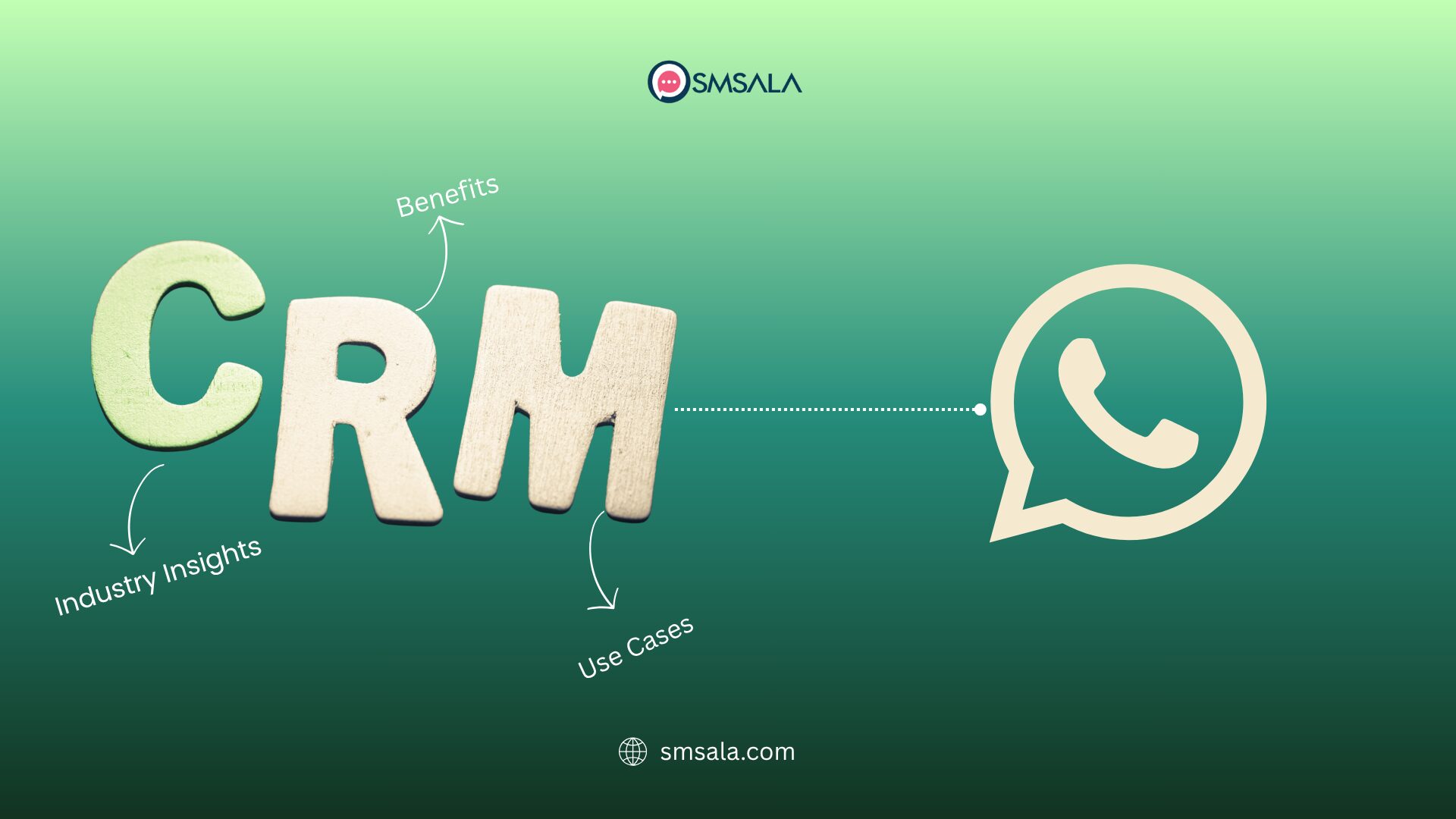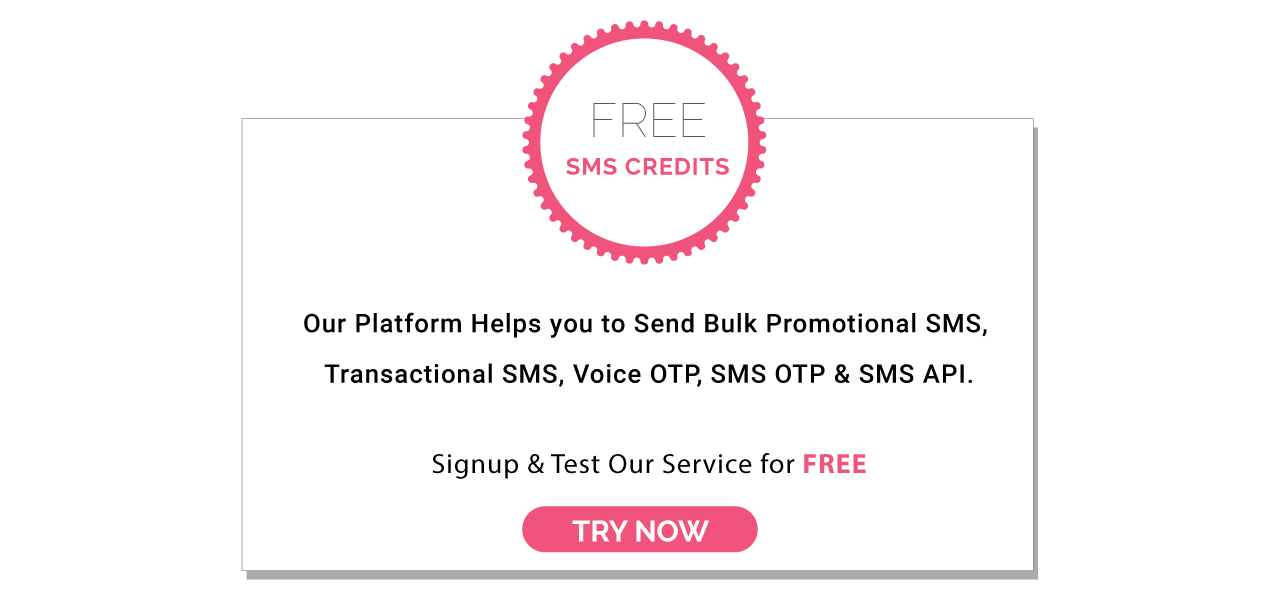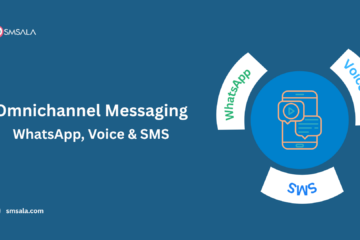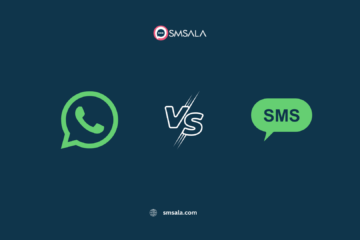Customer communication in the USA is changing fast. Email is slower than customers expect, and phone calls often go unanswered. WhatsApp, once used mostly for personal chats, is now moving into the mainstream for business. With over 75 million monthly users in the USA and growing adoption in service industries, companies see WhatsApp as a direct, real-time channel.
But here’s the challenge: handling hundreds of WhatsApp conversations without linking them to your CRM creates chaos. Sales teams lose track of leads, support staff repeat questions, and managers lack data on conversions. That’s why WhatsApp CRM integration is becoming a top priority for U.S. businesses in 2026.
Why U.S. Businesses Need WhatsApp CRM Integration
American consumers expect instant responses. Research by Forrester shows that 73% of U.S. buyers abandon a brand after a poor support experience. Delays of even a few hours can cost deals.
- Industries experiencing this change the most include:
- E-commerce: Customers want to get updates on their order status, refunds, and personalized offers via WhatsApp rather than through email.
- Healthcare: Clinics began using secure chats via WhatsApp to remind people of their appointments or share laboratory results.
- Real estate: Agents send their customers property photos, video tours and follow-up information within minutes.
- SaaS startups: Support and onboarding happens quicker when tied into your product’s CRM workflows.
Whenever WhatsApp connects to a product’s CRM, every dialogue is noted in your customer record. Teams stop guessing, and decisions can be made based on data.
Core Benefits of WhatsApp CRM Integration
- Unified customer profiles
All WhatsApp messages link to existing CRM contacts. Sales reps know the full history before replying.
- Real-time engagement
Instant replies build trust. Automated greetings and quick replies reduce wait times dramatically.
- Automation and campaigns
WhatsApp drip campaigns replace email for higher engagement. Payment reminders, abandoned cart nudges, or feedback surveys run without manual effort.
- Improved sales productivity
Reps save hours each week because leads and conversations flow into one system. No more switching tabs or missing follow-ups.
- Measurable ROI
Businesses track open rates, response times, and closed deals. Unlike SMS or email, WhatsApp provides reliable delivery data.
The Risk of No Integration
Companies that run WhatsApp and CRM separately face three common problems:
- Fragmented data: Leads sit in WhatsApp chats, while CRMs hold only partial records.
- Slow responses: Without alerts or automation, hot leads go cold.
- Compliance gaps: In healthcare and finance, missing audit trails can mean penalties under HIPAA or state privacy laws.
For a U.S. business scaling customer operations, these risks are too high to ignore.
Top WhatsApp CRM Tools in the USA Market (2026)
A number of platforms already have a stronghold in this space:
Salesforce + WhatsApp: Very powerful, but costly. Designed for large companies
HubSpot + WhatsApp: A great pairing for companies that are inbound-focused, though the pricing can escalate quickly.
Zoho CRM + WhatsApp: Affordable, reasonable automation functionality.
SMSala WhatsApp CRM Integration: An affordable, scalable, and compliant solution designed for companies in the U.S. that need both speed and reliability.
Global CRMs will have integrations, but many U.S. small to mid-sized businesses elect to use SMSala as their partner for local support, speed of onboarding to onboarding, and competitive pricing.
Why SMSala Leads the U.S. Market
- Compliance-first approach
U.S. companies, especially in healthcare and finance, face strict data privacy laws. SMSala ensures end-to-end encryption and HIPAA-ready processes.
- Easy onboarding
Integration takes days, not weeks. SMSala’s support team helps connect WhatsApp with CRMs like Salesforce, Zoho, and HubSpot.
- Affordable plans
Unlike Salesforce or Twilio, SMSala offers pricing that small businesses can sustain while still scaling.
- API flexibility
Developers get full API access, making it simple to build custom workflows for e-commerce, logistics, or SaaS.
- Proven results
U.S. clients report faster lead response times, higher close rates, and more satisfied customers after switching to SMSala.
U.S. Industry Use Cases
- Retail & e-commerce: Abandoned cart reminders sent over WhatsApp recover lost sales.
- Healthcare: Clinics send secure test results and appointment confirmations directly into patient CRM profiles.
- Real estate: Brokers share listings and schedule tours through WhatsApp, with every message logged in CRM.
- SaaS startups: Automated onboarding journeys keep churn low by walking new users through product steps.
How to Get Started with SMSala WhatsApp CRM Integration
- Sign up with SMSala
Create your account and request WhatsApp Business API access.
- Connect your CRM
Choose Salesforce, HubSpot, Zoho, or any other supported platform.
- Set up automation
Build workflows for lead assignment, reminders, and customer follow-ups.
- Launch campaigns
Start with simple flows — welcome messages, abandoned cart recovery, or feedback requests.
- Track results
Use SMSala’s reporting dashboard to measure open rates, response times, and conversions.
FAQs:
- What is WhatsApp CRM integration?
WhatsApp CRM integration connects your WhatsApp Business account with your CRM system, allowing you to manage all customer messages, leads, and interactions in one platform. - Why should U.S. businesses integrate WhatsApp with their CRM?
Integration improves response times, centralizes customer data, automates workflows, and boosts engagement, ultimately increasing sales and customer satisfaction. - Which CRM platforms in the USA support WhatsApp integration?
Popular options include Salesforce, HubSpot, Zoho CRM, and other platforms that support API-based messaging. Integration tools or providers help connect WhatsApp to these CRMs. - Can I automate WhatsApp messages through my CRM?
Yes. You can automate welcome messages, follow-ups, reminders, or campaigns based on customer behavior, all while tracking engagement in your CRM. - Is WhatsApp CRM integration secure for U.S. businesses?
Yes. Most reputable integration solutions offer end-to-end encryption and comply with U.S. data privacy regulations such as HIPAA for healthcare and TCPA for marketing messages. - How does integration help different industries in the USA?
- E-commerce: Order updates, abandoned cart reminders.
- Healthcare: Appointment reminders, secure patient communication.
- Real Estate: Lead follow-ups, property updates.
- SaaS: Onboarding, product guidance, upsell campaigns.
7. Do I need the WhatsApp Business API for CRM integration?
Yes. The standard WhatsApp Business app cannot connect directly to most CRMs. The API version is required for multi-user access, automation, and larger-scale messaging.
Conclusion
For U.S. businesses in 2026, WhatsApp CRM integration is no longer a luxury. Customers expect instant, personalized communication, and companies that fail to deliver will lose market share.
While global platforms offer integrations, SMSala provides the most practical balance of compliance, affordability, and scalability. Whether you’re an e-commerce store in California, a clinic in New York, or a SaaS startup in Austin, SMSala makes WhatsApp CRM integration fast and effective.




